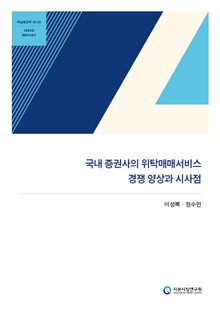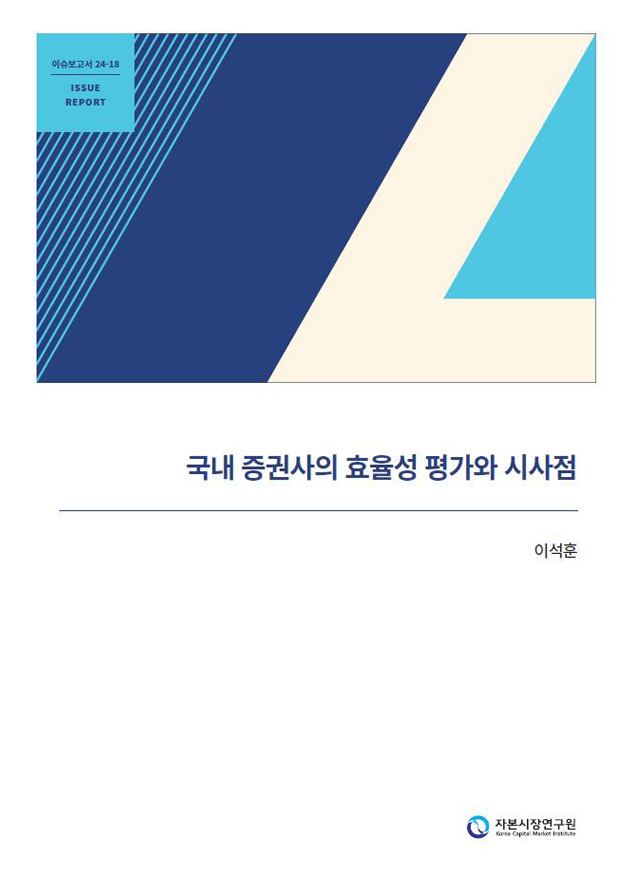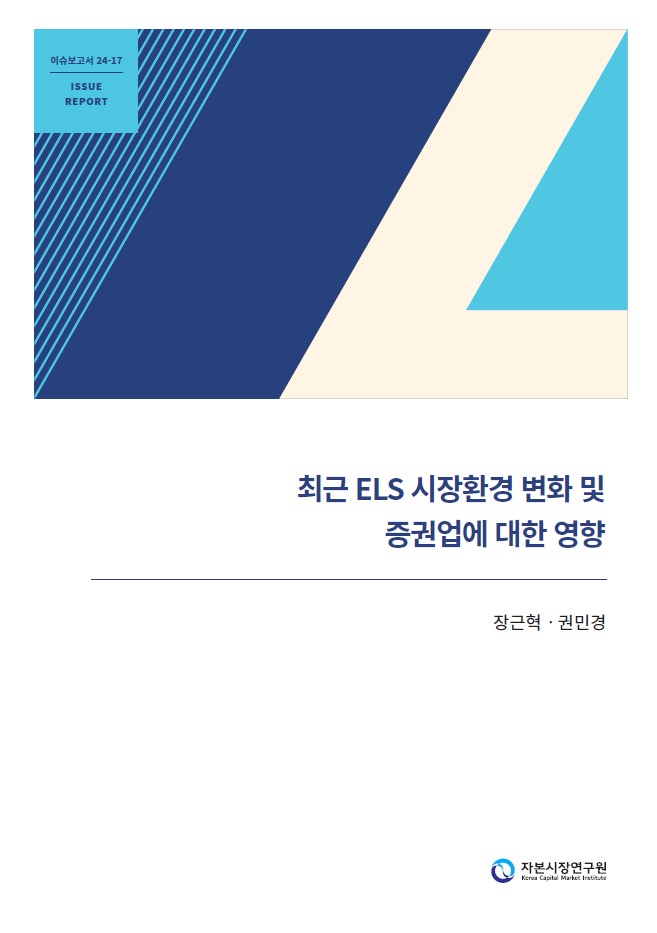Find out more about our latest publications
91 Results

The brokerage services market in South Korea has experienced notable quantitative and structural transformations in recent years. This expansion, along with new market en...

Amid shifts in the capital market environment and evolving industry policies, the securities industry has undergone rapid structural changes throughout the 2010s. In particular, the expansion of investment banking and proprietary trading has increase...

In the prolonged low interest rate environment following the 2008 financial crisis, equity-linked securities (ELS) gained popularity among investors due to their higher returns compared to traditional deposits. As the ELS market expanded rapidly, ban...

As the sales of complex and high-risk financial products, such as Hong Kong H-index ELS and interest rate-linked DLF, have increased, the amount of damage to financial consumers due to mis-selling has also risen. Despite substantial financial losses ...